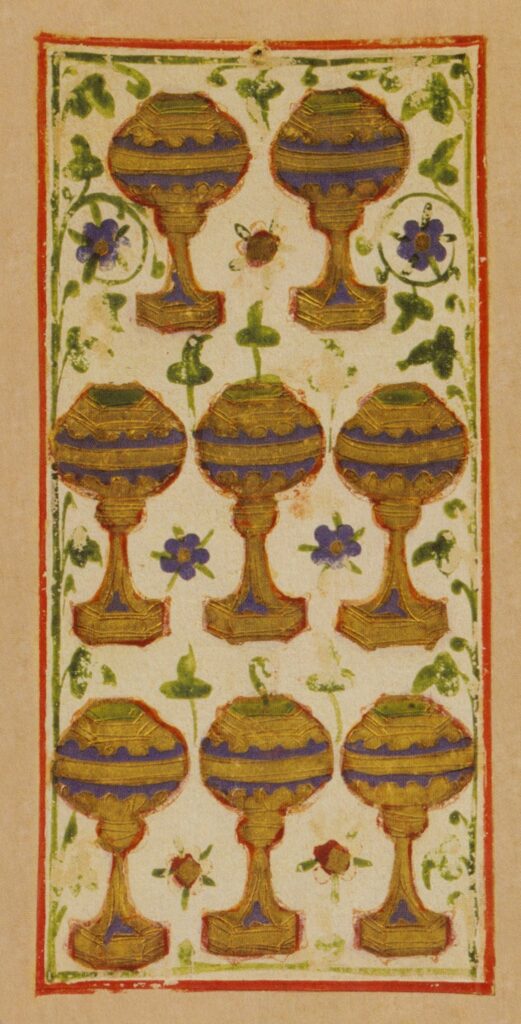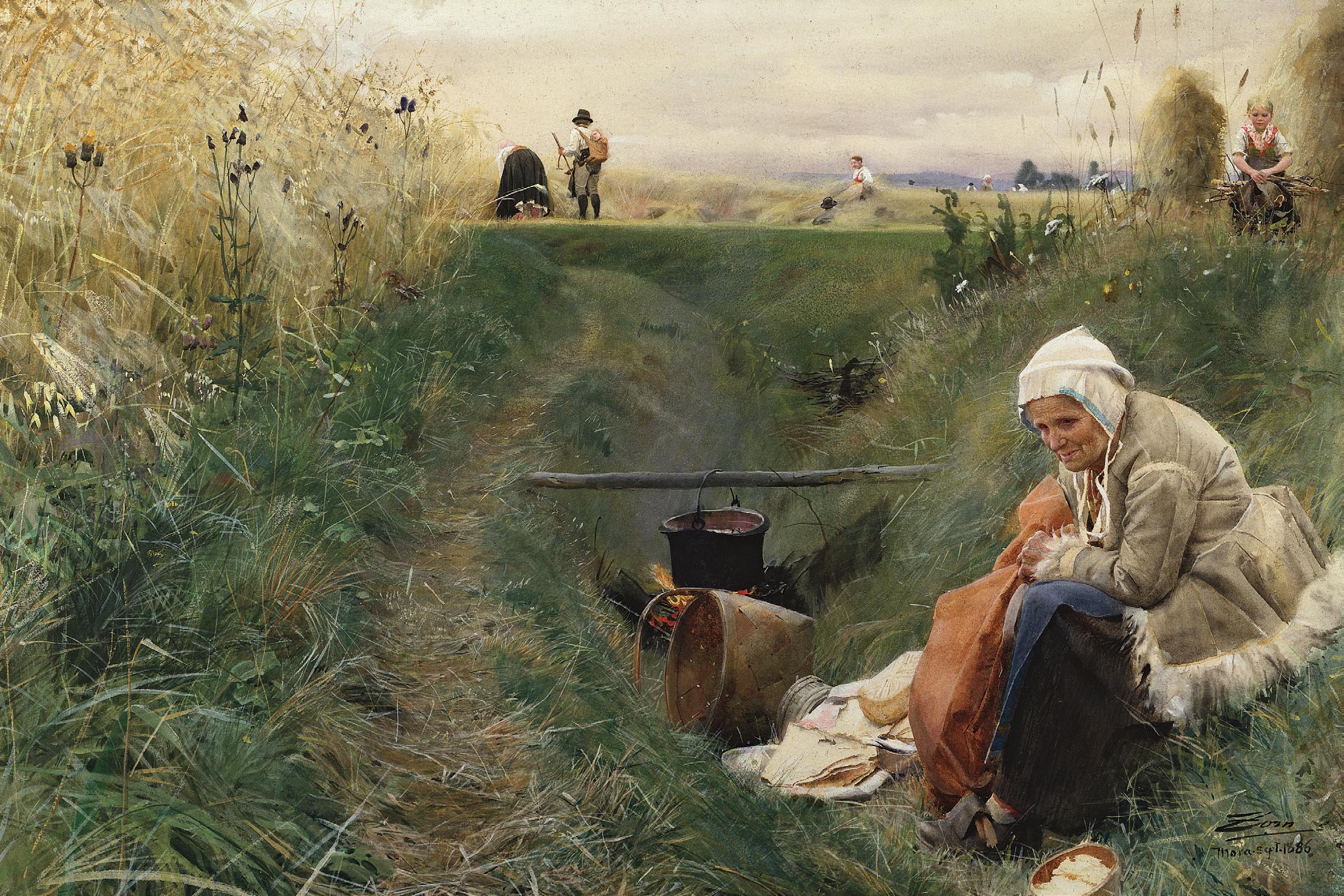The Eight of Cups has long been a card that unsettles the contemplative soul. Its image is one of departure, leaving behind vessels that once promised fullness yet now spill only a bitter residue. The figure who turns away goes into obscurity. It speaks of abandonment, of stepping out from a chamber where the air has grown stale. It whispers of a movement that is a slow detachment, a desertion of what once was thought to be enough. And, in that movement, one feels the cold presence of acedia, the ancient malady of the monks, the spirit that presses upon the heart when the sun stands high and the soul begins to faint beneath its own weight.
The Fathers of the Desert called acedia the demon of the noon. It is the strange aversion to prayer and to life itself. One sits, and the hours lengthen into dread. Food tastes like dust. Scripture resists the eyes. The cell, once a temple, becomes a prison. But, within this aridity, one finds the same movement as in the Eight of Cups. The monk looks upon his psalms his bread, upon the little world of devotion, and he feels only disgust. And the Spirit says: rise and walk into the desert, even if the desert may feel like death. The soul recoils from what sustained it, and that recoil is the summons to walk further than comfort.
I. The Cup Turned Down
The Eight of Cups belongs to the figure of dissolution and reorientation. Eight is the number of resurrection; on the eighth day creation is renewed. Yet the eighth day can only dawn when the seventh has closed, when the work of fullness is abandoned. The cups stand aligned but their content has soured, and the seeker must walk away. In this gesture the card resembles acedia itself; the soul is moved by necessity. The psalms, the prayers, the rituals may still stand in order, but taste of ash.

The Fathers describe this with brutal simplicity. Acedia makes the monk stare at the sun and sigh that the day will never end. It makes the brother despise his own place, long for other lands, and feel his hands fall heavy.
II. Hod and the Descent of Severity
In the Tree of Life, the number eight is Hod, the sphere of Mercury, the echoing chamber of the Verbum. It is also seated upon the Pillar of Severity, beneath the Mother. Hod is where speech fractures and repeats, where clarity becomes analysis, where the splendour of Netzach is tested by the demand for form. In the world of Briah, where creation still burns with Divine imagination, Hod is the chamber of severe reflection. The Eight of Cups mirrors this quality; the splendour of past devotion meets the mercurial demand for departure. It is the intellect pierced by the gravity of the Mother, telling the child that growth means leaving behind what was once nourishing.
In acedia, the same law appears. The monk cannot dwell forever in the sweetness of first devotion. The Spirit demands a harsher speech, a movement into silence. Hod forces the mind to descend into its own emptiness; the Word becomes echo, then becomes absence. This absence is not abandonment by God, but the schooling of the Mother. The eight is a chalice overturned, that what lies beneath may be revealed.
III. Saturn in the House of Waters
The card resonates with Saturn, the lord of time and decay, who here finds his end in Pisces. The last house, cadent and dissolving, is where cycles conclude. Saturn in Pisces is the image of the vessel that empties, of the old man who knows that the sea will take back what the land once gave. It is Saturn’s step into the final house, where all effort feels futile, and where the soul sighs that nothing holds. The first decan of Pisces is also marked by the virtues Veualiah and Ielahiah; Spirits of courage, liberation, and justice, reminding the weary soul that even dissolution hides strenght to conquer and to endure.
Nevertheless, within Saturn is always the seed of wisdom. The cup that spills then reveals the space for fresh, new water. The desert of acedia hides the fire of the Spirit, and the end of devotion is the birth of a deeper prayer. The monk who endures without fleeing discovers that within the emptiness there glimmers a spark that cannot be extinguished. This spark is the true Eucharist; the Divine spark spoken of by the gnostics. It is Mary keeping the word in her heart while silence fills the world.
Fiat Lux.
